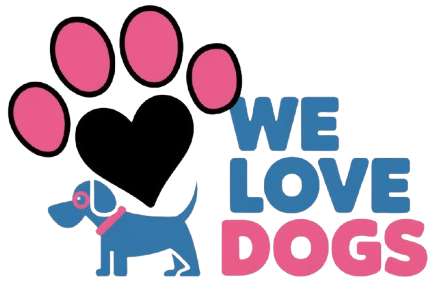Shutterstock
Canine are identified for his or her wagging tails, goofy grins, and uncanny skill to nap nearly anyplace. Whereas it could appear to be your pup is sleeping the day away, there’s a superbly pure rationalization for his or her spectacular snooze habits. Canine aren’t lazy; their sleep wants differ considerably from ours as a consequence of their distinctive biology and instincts. Relying on their breed, age, and every day exercise degree, canines can sleep anyplace from 12 to 18 hours a day—and sure, that features spontaneous sofa naps and upside-down loud night breathing within the hallway.
They’re Conserving Power Like a Fuzzy Battery
Shutterstock
Canine are organic champions at conserving power; a trait handed down from their wild ancestors. Canines should relaxation between hunts within the wild to avoid wasting power for high-intensity bursts. Domesticated canines, even with a comfy way of life, retain this instinctual habits. So, when your pup is loud night breathing at 2 p.m., it’s much less laziness and extra of a built-in survival technique.
Their Sleep Cycles Are Completely different From Ours
Shutterstock
People usually fall into lengthy, steady sleep cycles, however canines sleep briefly bursts. Their sleep cycles final round 45 minutes, in comparison with our 90-minute cycles. As a result of their REM sleep is proscribed, they want extra frequent naps to remain refreshed. This explains why your canine can sleep half the day and nonetheless leap up on the crinkle of a snack bag.
Puppies and Seniors Want Extra Sleep
Shutterstock
Younger puppies are continuously consuming, enjoying, crashing, and repeating—and sleep is important for his or her development. Their our bodies and brains are growing quickly; relaxation is how they recharge and construct energy. Senior canines additionally require extra relaxation to heal, handle ache, and keep their well being. So, in case your older canine sleeps like a youngster on summer time break, it’s utterly regular.
They’re Bored, and There’s Nothing Higher to Do
Shutterstock
Sleep turns into their default setting when canines aren’t mentally or bodily stimulated. With out toys, puzzles, or interplay, they might nap to cross the time. Boredom-induced sleeping is very frequent in canines left dwelling alone for lengthy intervals. Napping turns into one of the best obtainable leisure when there’s nothing enjoyable happening.
Train (or Lack of It) Impacts Their Sleep Wants
Shutterstock
After an enormous outing or an intense play session, canines typically crash into deep, satisfying sleep. Like people, canines use relaxation to recuperate and restore after bodily exertion. On the flip facet, canines who don’t get sufficient train would possibly sleep extra out of sheer inactivity. That doesn’t imply they’re drained—it simply means they’re under-stimulated and filling the void with naps.
It’s All In regards to the Breed, Child
Shutterstock
Breed considerably impacts how a lot a canine sleeps; some canines are virtually born with sleep goggles. Bulldogs, Mastiffs, and Greyhounds are infamous for his or her snooze-heavy life. Working breeds like Border Collies and German Shepherds want much less relaxation as a result of they’re wired for exercise. So sure, your Basset Hound isn’t lazy—they’re simply following their breed’s blueprint for all times.
Their Sleep Is Usually Interrupted
Shutterstock
Even when canines are “asleep,” they’re nonetheless tuned into the world round them. Their senses stay partially lively, so small sounds or scents can awaken them. Due to these interruptions, canines hardly ever attain the identical degree of deep, uninterrupted sleep as people. To compensate for this, they have to nap extra regularly all through the day.
Well being Points Can Improve Sleep Time
Shutterstock
Typically, a canine’s extreme sleep is a symptom of an underlying well being drawback. Situations like hypothyroidism, anemia, or infections could cause lethargy and extended naps. In case your canine’s sleep habits change all of the sudden or appear unusually drowsy, it’s time to test in with the vet. Sleep is a therapeutic mechanism, so canines instinctively relaxation extra when their physique isn’t 100%.
They’re Dwelling the Good Life
Shutterstock
Canine that sleep soundly typically really feel totally safe of their atmosphere. When pups really feel liked, protected, and stress-free, they’ll totally calm down and catch high quality z’s. That’s why rescue canines typically sleep extra as soon as they’ve settled right into a eternally dwelling—it’s their method of recovering from previous stress. A well-slept canine is often a well-loved one.
The Nap-pily Ever After We All Deserve
Shutterstock
So there it’s—your canine’s epic nap routine is extra about biology than laziness. Canine have strong, science-backed causes for all that snoozing, from conserving power to feeling utterly protected of their atmosphere. They’ve earned each nap after an extended day of guarding the yard in opposition to rogue leaves, chasing imaginary intruders, and providing top-tier emotional assist. Their peaceable sleep indicators belief, contentment, and total well-being. So the subsequent time you see your pup mid-snore with a twitching paw, keep in mind—they’re not lazy; they’re a extremely educated relaxation skilled.
